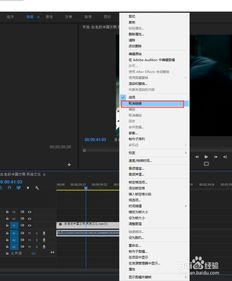Situation Analysis, Navigating Complexity- Strategies for Effective Decision Making

Understanding the Fundamentals of Situation Analysis
At its core, situation analysis (situation) is about gathering information, assessing the context, and predicting outcomes. It's a critical step in decision-making processes across various fields, from business to personal life. By understanding the fundamentals, you can apply situation analysis to make better decisions.
For instance, in a business setting, situation analysis can help identify market trends, customer needs, and competitive landscapes. This knowledge is invaluable for crafting successful strategies and ensuring business growth.
How often do you find yourself in situations where a deeper understanding could have led to a better outcome? Situation analysis can be the key to unlocking these answers.
Techniques for Effective Situation Analysis
Several techniques can enhance your situation analysis skills. These include SWOT analysis (Strengths, Weaknesses, Opportunities, Threats
), PESTLE analysis (Political, Economic, Social, Technological, Legal, Environmental
), and scenario planning.
SWOT analysis helps identify internal and external factors that can impact a situation. PESTLE analysis provides a broader view by considering various external influences. Scenario planning involves creating multiple future scenarios based on different outcomes, aiding in preparing for uncertainties.
Have you ever considered using these techniques in your situation analysis? They can significantly enhance your decision-making process.
Applying Situation Analysis in Real-World Scenarios
Real-world scenarios often present complex situations that require careful analysis. Whether it's a critical business decision or a personal choice, applying situation analysis can lead to more favorable outcomes.
For example, a company considering market expansion must analyze market trends, customer behavior, and competitive dynamics. By applying situation analysis, the company can make informed decisions that align with its goals and minimize risks.
Can you think of a recent situation in your life where applying these techniques might have improved the outcome?
Common Challenges in Situation Analysis
While situation analysis is a powerful tool, it's not without its challenges. Some common hurdles include incomplete information, biases, and emotional influences.
To overcome these challenges, it's essential to gather as much information as possible, remain objective, and consider different perspectives. This approach helps in creating a more accurate and comprehensive analysis.
Have you faced any of these challenges in your situation analysis? How did you address them?
Best Practices for Consistently Good Situation Analysis
To excel in situation analysis, adopting best practices is crucial. These include continuous learning, seeking diverse perspectives, and regularly reviewing and updating your analysis.
Continuous learning ensures you stay updated with new trends and techniques. Seeking diverse perspectives helps in avoiding biases and considering all angles. Regularly reviewing and updating your analysis ensures it remains relevant and accurate.
What practices do you currently follow to improve your situation analysis skills?
Keys to Successful Decision Making with Situation Analysis
Ultimately, successful decision making with situation analysis hinges on several key factors. These include clarity of objectives, thorough analysis, and a willingness to adapt.
By clearly defining your objectives, conducting a thorough analysis, and remaining flexible, you can make decisions that lead to positive outcomes. Situation analysis is a dynamic process that requires ongoing attention and adjustment.
How do you ensure that your decision-making process incorporates these keys to success?
In conclusion, situation analysis is an indispensable tool for navigating complex situations and making informed decisions. By understanding its fundamentals, applying effective techniques, and adopting best practices, you can enhance your decision-making skills and achieve better outcomes in various aspects of your life.




